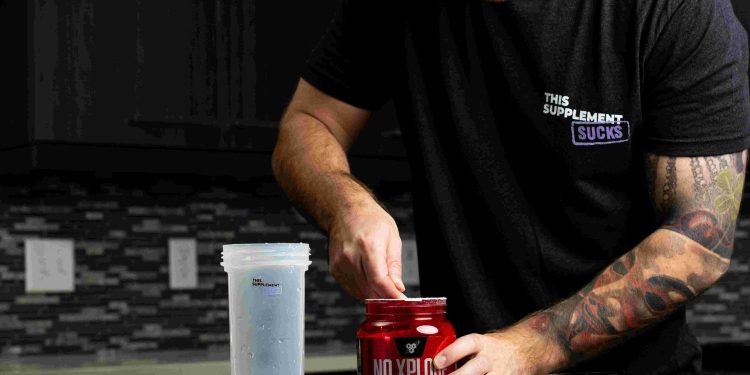Personalized Fitness Plans for Beginners

Health Begins in the Mind
“Your body is your most priceless possession. Take care of it.” These words from fitness pioneer Jack LaLanne embody the profound truth about modern well-being. Too often, we approach fitness as a short-term sprint, driven by fleeting motivations like new year resolutions or social media trends. But what if the paradigm shifted? What if we began crafting fitness plans not as punishments but as profound acts of self-care rooted in personal discovery?
Let me take you back to when I first started my fitness journey. Like most beginners, I was overwhelmed by information. Every website seemed to contradict the last. “Go keto,” “No, try intermittent fasting,” “Lift heavy,” “Focus on cardio.” It felt like entering a maze without a map. And yet, my breakthrough didn’t come from blindly following trends; it emerged from deeply listening to my body and understanding my unique needs.
The Myth of One-Size-Fits-All
The fitness industry has long thrived on selling one-size-fits-all solutions. From cookie-cutter gym memberships to rigid diet blueprints, there’s an implicit promise: “Do this, and you’ll succeed.” But here’s the uncomfortable truth: human beings are a kaleidoscope of genetics, preferences, and lifestyles. What works for a busy executive may fail a university student just as easily as a marathoner’s regimen would exhaust a yoga enthusiast.
Why, then, do we cling to universal answers? Part of the reason is psychological. As behavioral economist Dan Ariely suggests, people love certainty—even if it’s an illusion. Sure, following a standard plan feels safe, but safety isn’t always progress. A personalized fitness plan acknowledges your individuality, empowering you to choose movement, nutrition, and recovery strategies tailored uniquely to you.
Fitness Through the Ages: A Cross-Disciplinary Perspective
Historically, fitness wasn’t always measured by reps, sets, or calories burned. In the ancient Greek tradition of arete (excellence), physical training was considered alongside intellectual and moral development. Aristotle argued that a balanced body was a key pillar of a balanced soul. Fast-forward to today, and technology disrupts these historical norms. Wearable fitness trackers, AI-driven workout apps, and genetic testing kits have revolutionized personalization; your fitness plan can now incorporate not only your goals but also your biology and mindset.
Yet, with innovation comes responsibility. Philosopher Marshall McLuhan once warned that every new technology amplifies human capabilities while simultaneously creating new dependencies. Striking the right balance between leveraging tech tools and cultivating inner awareness is key to creating sustainable habits.
Building Your Personalized Plan: Step-by-Step Guide
Ready to ditch cookie-cutter approaches? Here’s how to craft a fitness plan tailored just for you:
-
Self-Assessment:
Start by answering critical questions: What are your fitness goals? What do you enjoy doing? Do you have injuries, time constraints, or dietary preferences? -
Set SMART Goals:
Use the SMART framework (Specific, Measurable, Achievable, Relevant, Time-bound) to clarify what success looks like. “Run a 5K in 3 months” is more actionable than “get fitter.” -
Experiment with Modalities:
Not sure if you love yoga, weightlifting, or swimming? Allocate a few weeks to test different activities. Personalization is born from exploration. -
Consult Experts:
Whether it’s a trainer, nutritionist, or therapist, getting advice from professionals can anchor your plan in science rather than guesswork. -
Track Progress Holistically:
Journaling your mental state, sleep quality, and energy levels alongside workout stats gives a more comprehensive understanding of progress. -
Adapt and Iterate:
Life changes. So should your plan. Periodically review and refine to ensure your strategy evolves with you.
Overcoming Stumbling Blocks
Every fitness journey is riddled with obstacles, from mid-workout self-doubt to seemingly endless plateaus. Psychological resilience becomes your greatest ally here. According to sports psychologist Dr. Angela Duckworth, fostering grit—defined as passion and perseverance for long-term goals—is more predictive of success than talent or luck. Cultivating grit begins with mindset shifts.
Instead of viewing setbacks as failures, frame them as experiments. A skipped workout isn’t a moral failing; it’s data on what might need adjustment. Embrace curiosity. Treat fitness less like a task and more like a creative endeavor. This mindset—of treating your body like an ever-evolving masterpiece—can imbue the process with joy and purpose.
The Future of Personalized Fitness
Looking ahead, the union of technology and fitness will further blur boundaries. Imagine a world where your fitness tracker syncs with your work calendar, analyzing stress levels and prescribing workouts accordingly. Or envision AI-driven meal plans that evolve as you age, powered by a deep database of nutritional science and your individual biomarkers. The possibilities are endless, but this innovation also demands introspection. As automation grows, how do we maintain personal agency over our health choices?
Furthermore, the social dynamics of fitness are shifting. Online communities are now as influential as in-person gyms. From Peloton cohorts to Strava-running groups, shared accountability redefines how we pursue goals. Harnessing this social power while preserving individual agency is the future.
A Journey Without End
The beauty of creating a personalized fitness plan is that it’s never really finished. Like a great novel, it evolves with every chapter of your life. It reflects who you are and who you are becoming. And as it changes, it teaches you a profound truth about not just fitness but life: genuine growth isn’t about perfection. It’s about persistence.
You hold the pen. Write not just a fitness plan but a narrative that speaks to your deeper values. Challenge the template, break the mold, and discover a plan uniquely yours. Begin today. Your future self is already cheering you on.














Discussion about this post